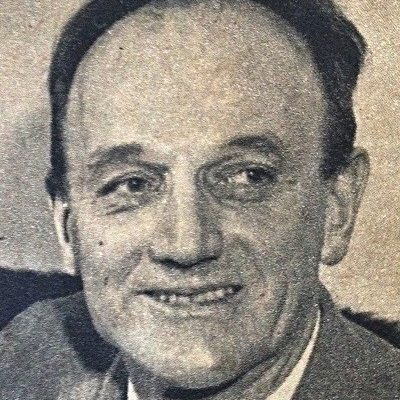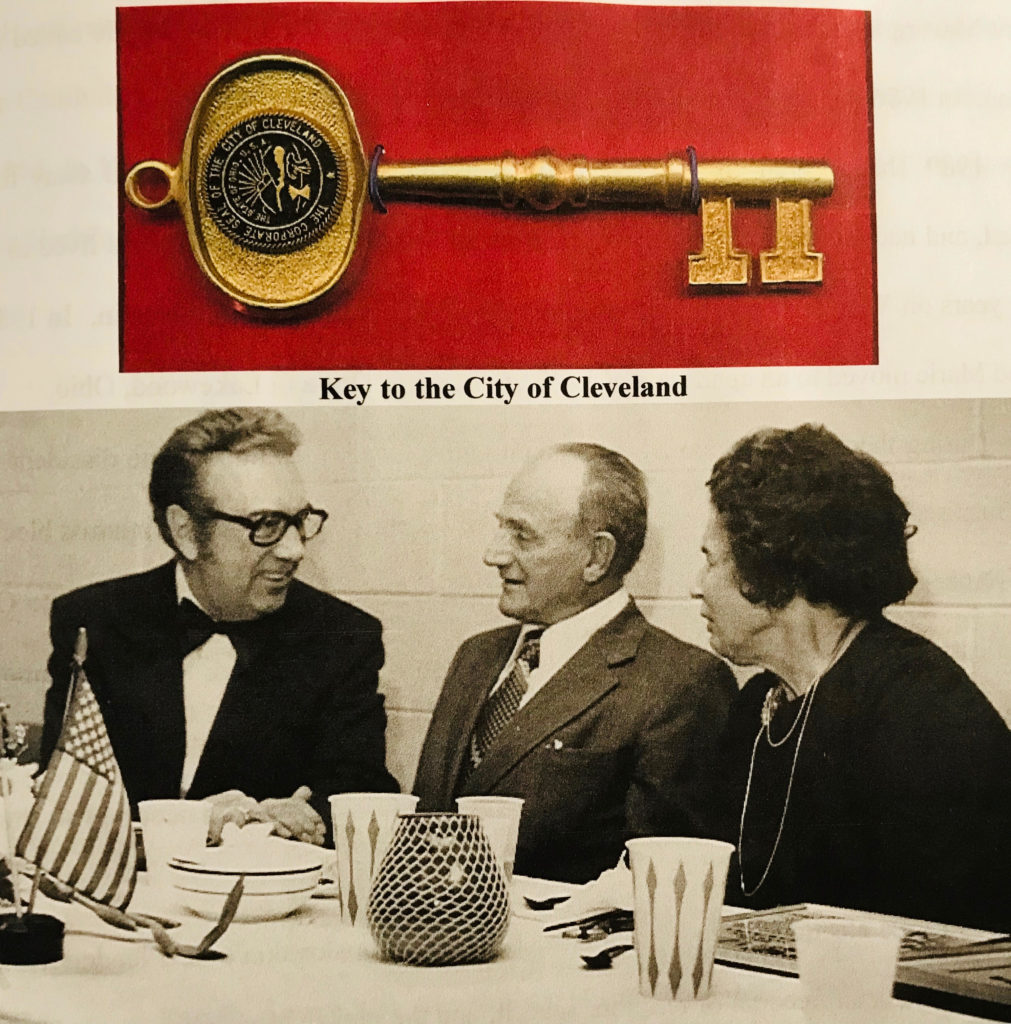Martin Hrabík
I was born in Vílov near Domažlice on October 6, 1904, as a son of a peasant. I worked on the family farm until I reached adulthood, when I was tempted by politics. I joined the Republican (agrarian) Party, and I became the director of its youth organization with more than 100,000 members in the mid-1930s. I published in party newspapers and organized various demonstrations and cultural events. I had great plans in politics, but fate decided otherwise.
After the German occupation, I joined the resistance. I was arrested by the Gestapo in May 1940.
After the German occupation, I joined the resistance. I was arrested by the Gestapo in May 1940. The People’s Court in Berlin sentences me to five years. I spent the longest time in Hameln Prison in Lower Saxony. In April 1945, the US Army liberated us. After World War II, I returned to Prague at last, welcomed by my wife, Marie, and a five-year-old daughter who was born just a week after my arrest. I disagreed with the political situation in the liberated Czechoslovak Republic and feared the rise of the Communist Party’s power. Again, I had the secret police watching my activities. To prevent almost certain arrest and to secure a better future for the whole family that was increased by two boys, I decided to leave Czechoslovakia illegally in February 1948. My wife and our children crossed the border in July. We happily reunited in a refugee camp in Germany.
We moved to France, where I helped to establish the Czechoslovak Republican Party in Exile in September 1948. Its chairman was Josef Černý, the former Minister of the Interior. Several times, as a family, we applied for visas to the USA. These were finally granted three years later, in the fall of 1951. At first, we settled in Washington D.C., with almost no money. A good friend of mine, Jaroslav Pecháček, who got a job at the Radio Free Europe, lent us two hundred dollars, a huge sum at the time. My first job was as an elevator operator in a hotel; I received $ 35 a week.

Friends convinced me to move to Cleveland, Ohio, where more jobs were available. We arrived just few days before Christmas of 1951. I got a physically demanding, but well-paid job at the Republic Steel Company. We had to change apartments several times because it was not easy to accommodate three children. Above that, our boys were very active and the neighbors complained constantly. A local butcher and Czech compatriot, Mr. Horák, rented us an apartment at Clark Avenue, where we spent six happy years. In 1958, we all became American citizens.
I am proud that I was able to buy our own house at the beginning of the 1960s, and that all of our children got a high quality education. I also tried to be as active as possible in the Czech community, in the gymnastic association Sokol, in the Czech Catholic Union, and – in particular – in the Committee for the Liberation of Czechoslovakia, an umbrella organization of all Czech clubs in the city. I held the position of chairman between 1964-69, 1972-73 and in 1980-81 again.
After the invasion of Czechoslovakia in August 1968, we organized massive demonstrations, probably the biggest in the US. I fought with all my strength to weaken the Communist regime.
After the invasion of Czechoslovakia in August 1968, we organized massive demonstrations, probably the biggest in the US. I fought with all my strength to weaken the Communist regime. Many politicians in Cleveland supported me in this effort, especially a close friend of mine, the Mayor between 1972-1977, Mr. Ralph Perk. I deeply touched to receive an honorary key from the city on my 70th birthday.
I did not neglect exile politics. I was active in the Czechoslovak Republican Party in Exile, publishing its press document Novina, and, in 1969, I took over the position of the chairman of the party, following Josef Černý. I held that post until the mid-1980s. It was obvious the communist bloc would collapse soon. My wife and I prayed to live long enough to see the return of freedom and democracy to Czechoslovakia and to visit our mother country. Full of emotions, we watched from a distance the events of the Velvet Revolution, Václav Havel’s speech at the US Congress, and the first free elections, held in the spring of 1990. Shortly afterwards, we arrived in Prague. Many friends and family members welcomed us at the airport. Although a long time had passed, our joy from the meetings with these people was infinite. We were back home!
Martin Hrabík passed away on October 22, 1992, at the age of eighty-eight, from complications caused by a heart attack. Two years later, his ashes were buried in a family tomb in Slavíkovice near Vílov. More than 70 000 Czechs lived in Cleveland in 1920s. Many people moved away after the World War Two, however the community leaders like Hrabík made sure the Czech spirit didn´t completely disappear from the shores of lake Erie. Even today, there is an active Sokol and library at the Bohemian National Hall at Broadway and regular social events, concerts and gatherings take place here.




